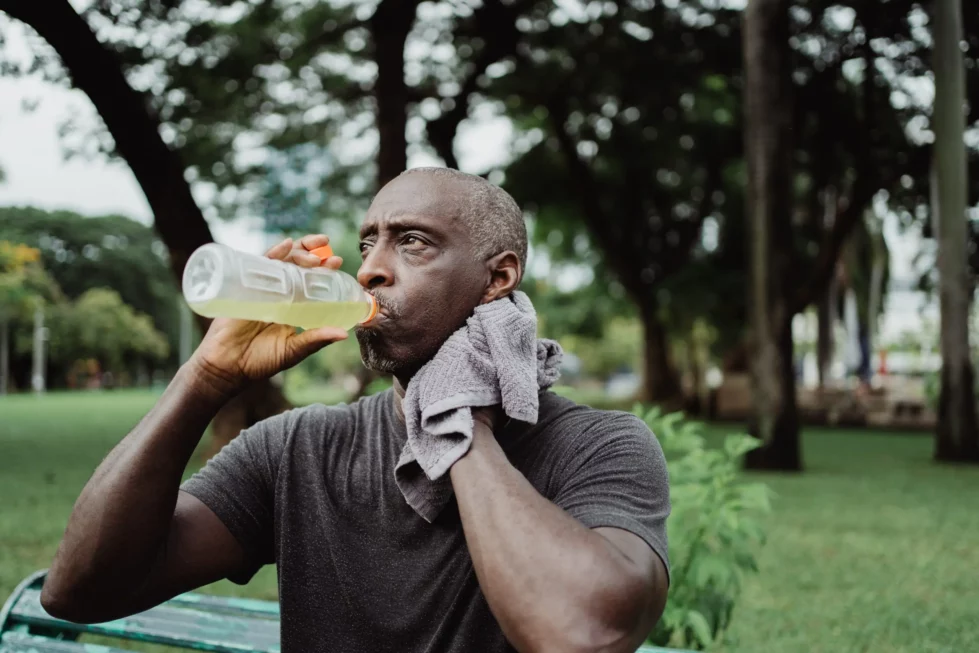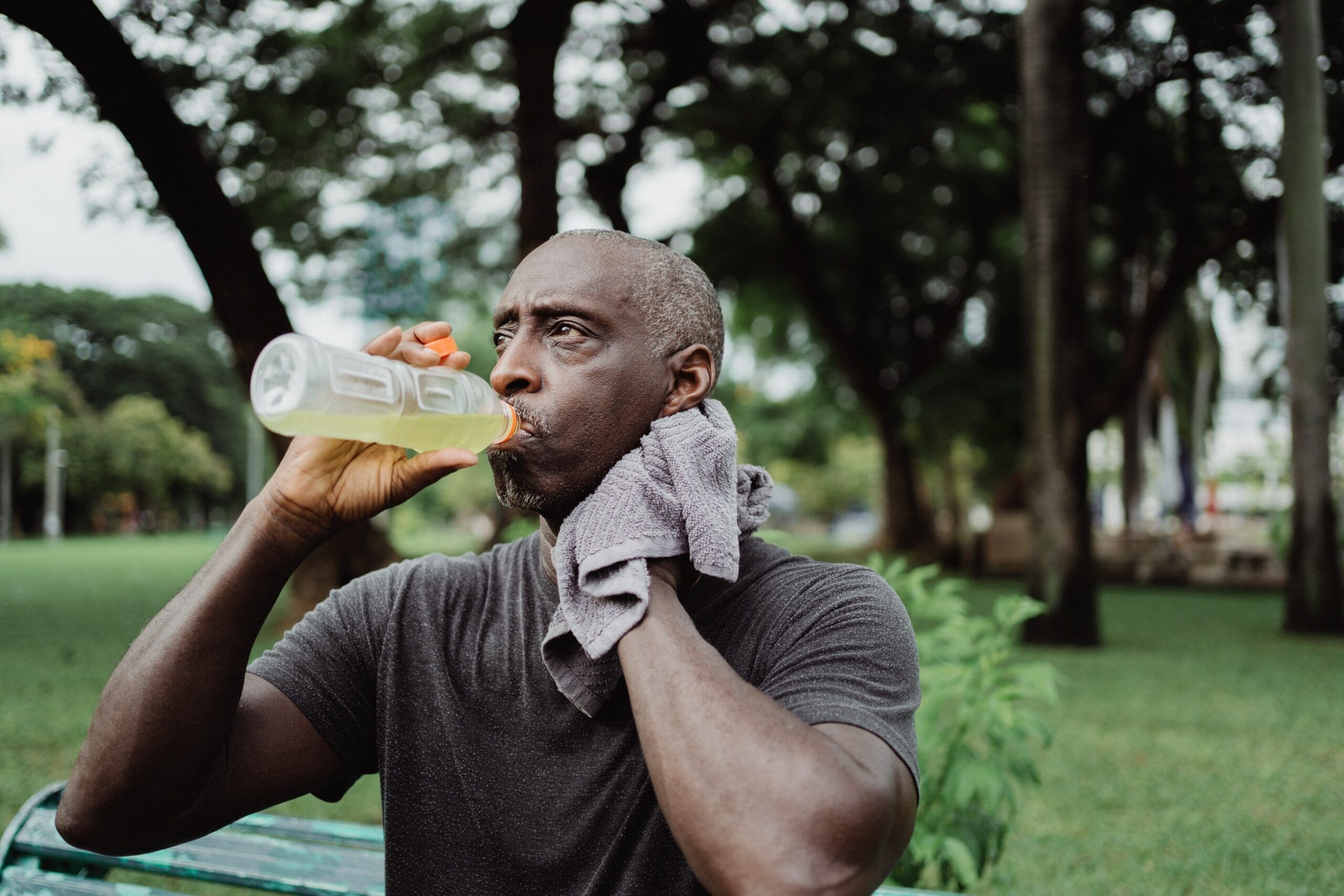Delaware challenge: take a walk outside for 15 minutes and try not to sweat – mission impossible.
In the heart of the summer season, the Delaware Division of Public Health warns First State residents – and their animal companions – to beware of extreme heat conditions that cause serious threats to health.
“Prolonged exposure to high temperatures can lead to heat exhaustion, heat stroke and other serious health complications,” the agency said in a public statement. “Heat exhaustion can cause a variety of symptoms, including excessive sweating, dizziness, nausea, headache and muscle cramps.”
If symptoms aren’t treated, more serious side effects of the heat could include trouble breathing, loss of consciousness or confusion. If someone falls victim to heat stroke, they should immediately get out of the sun and see medical attention.
There’s four tips the division of public health recommends:
Avoid direct sunlight and find a well-ventilated, air-conditioned place
If your household doesn’t have air conditioning, spend time in a public place that has it. Never leave people or pets in cars, even with the windows open.
A quick trick the Centers for Disease Control recommends to remind if a child is in the car is to keep a stuffed animal in a car safety seat unless a child is buckled in. When the child is buckled in, place the stuffed animal in the front seat so the driver has a mental reminder.
Prevent sunburn by applying sunscreen with an SPF of 15 or higher at 30 minutes before going outside and reapply as directed.
Stay hydrated
If out in the hot weather, the CDC says to drink water every hour, regardless of activity level. Instead of drinking caffeinated, alcoholic and carbonated drinks, reach for water to avoid dehydration.
Regular urination and pale or clear urine are signs that a person is drinking enough fluids.
Someone who’s experiencing dehydration will have dark urine, thirst, dry mouth, dry lips, headaches and dizziness.
In order to replace salt and minerals lost through heavy sweating, dehydrated individuals should drink a sports drink or fruit juice.
Don’t drink more water than you need to quench your thirst. It is possible to develop hyponatremia, a potentially fatal loss of sodium levels, when you drink too much water.
The division of public health says to keep an eye on adults who are at risk of heat exhaustion or heat stroke twice a day. Children and infants require more frequent supervision.
Limit outdoor activity, especially mid-day when the sun is hottest
Folks looking to exercise or hold sports team practices should do so early in the morning or in the early evening.
If the physical activity is outside, wear lightweight, light-colored clothing, and wear a hat or use an umbrella for shade.
Avoid taking a cold shower too soon after coming in from hot weather, as it can cause hypothermia, especially in the elderly and children. It is better to use cool water than ice cold water in these cases.
Stay informed
As well as knowing the warning signs of heat-related illnesses, be aware of local heat alerts. Infants and children younger than 4 years old, those 65 years and older, outdoor workers, athletes and obese people are at high risk of heat-related illness, along with those taking certain medications, having poor circulation, high blood pressure and living with mental illness.
Protect your pets
In addition to protecting yourself and loved ones, don’t forget to make sure your furry friends are not overheating.
The Division of Public Health and its Office of Animal Welfare urge pet owners to make a plan for caring for their pets.
Animals at the greatest risk of heat stress include pregnant or lactating animals, very young and older animals, animals with darker coats, obese pets, short-nosed dog breeds and animals with chronic health conditions.
Signs of heat stress in animals include panting, increased salivation, restlessness, muscle spasms, increased heartbeat and body temperature, weakness, lack of coordination, bright red or pale and sticky gums, vomiting, diarrhea and depression.
Here are the agency’s tips to keep pets safe in the heat:
Pets should not be left in vehicles, even in mild temperatures
Animals kept inside a vehicle in warm or hot temperatures are susceptible to heatstroke. According to the American Veterinary Medical Association, the inside of a vehicle can reach 89 degrees in just 10 minutes when the temperature outside is just 70 degrees.
At 80 degrees outside, that temperature can reach 99 degrees in that time.
Temperatures will continue to rise inside a vehicle, and cracking windows does little to help. Call 911 immediately if you see a pet left unattended in a vehicle.
Animals should have access to shade and water when outside
The best place for pets in hot temperatures is inside the home.
If a pet must be outside in the heat, or if they’re going outside to go to the bathroom, make sure the animal has a shaded area and fresh water to help stay cool.
Outdoor cat and dog houses are a heat chamber, so don’t let them hang out in there in the hot weather.
Practice caution when walking dogs in the heat
The best time of day to walk dogs in the summer is in the early morning or late evening when the sun’s heat is less intense.
Touch your hand to any surface where a walk is planned to see if it’s too hot for a pet. If it’s too hot for a human hand, it’s too hot for paws.
Pay attention to signs of heat stroke
Just like humans, dogs are susceptible to heat stroke in high temperatures, especially if there is increased activity or little ventilation.
A pet that is drooling and panting due to heat can quickly progress to a heat stroke, which can be life-threatening. Immediate veterinary attention is suggested.
For more information, click here.

Raised in Doylestown, Pennsylvania, Jarek earned a B.A. in journalism and a B.A. in political science from Temple University in 2021. After running CNN’s Michael Smerconish’s YouTube channel, Jarek became a reporter for the Bucks County Herald before joining Delaware LIVE News.
Jarek can be reached by email at [email protected] or by phone at (215) 450-9982. Follow him on Twitter @jarekrutz
Share this Post





